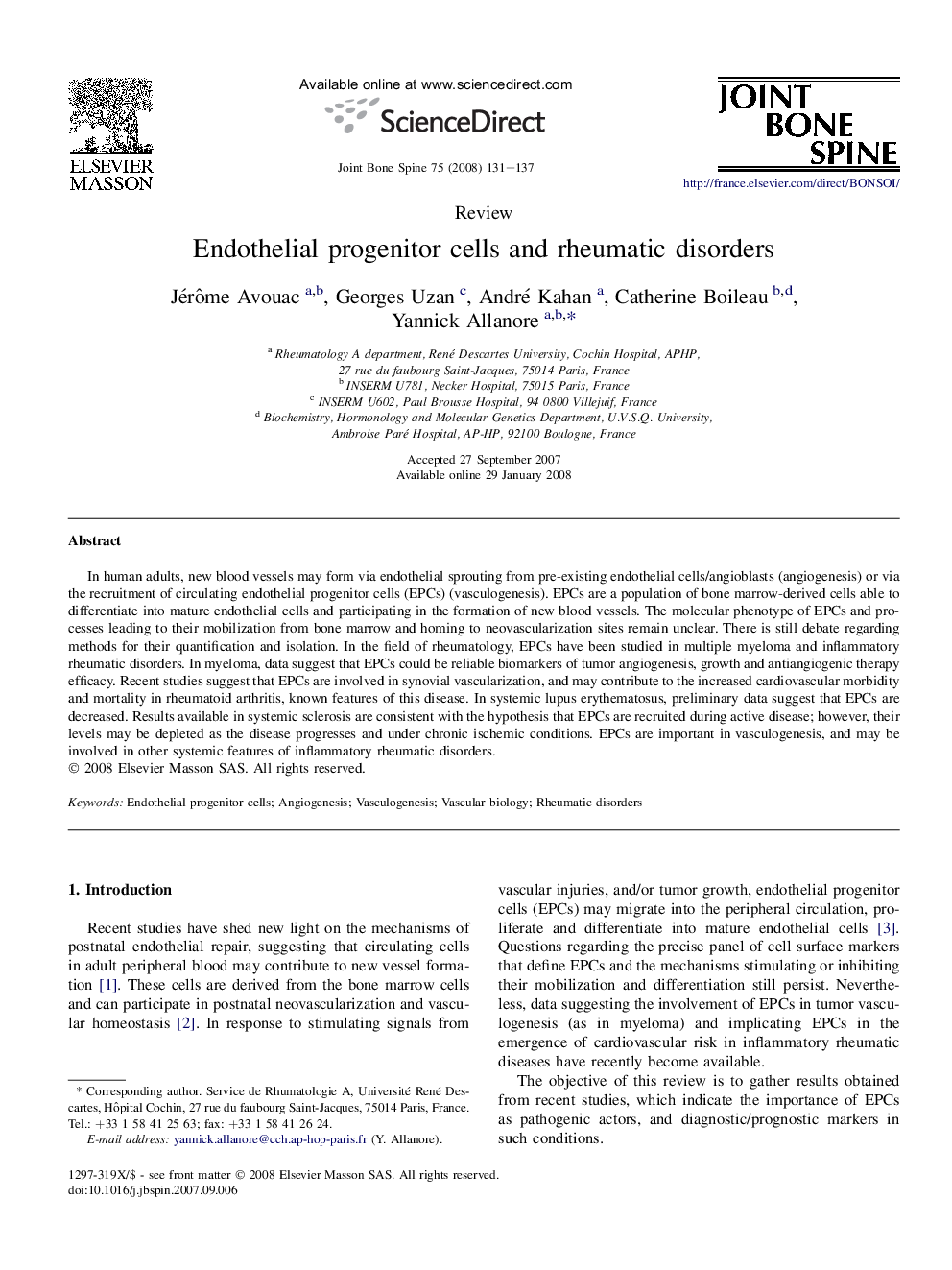| کد مقاله | کد نشریه | سال انتشار | مقاله انگلیسی | نسخه تمام متن |
|---|---|---|---|---|
| 3366897 | 1218422 | 2008 | 7 صفحه PDF | دانلود رایگان |

In human adults, new blood vessels may form via endothelial sprouting from pre-existing endothelial cells/angioblasts (angiogenesis) or via the recruitment of circulating endothelial progenitor cells (EPCs) (vasculogenesis). EPCs are a population of bone marrow-derived cells able to differentiate into mature endothelial cells and participating in the formation of new blood vessels. The molecular phenotype of EPCs and processes leading to their mobilization from bone marrow and homing to neovascularization sites remain unclear. There is still debate regarding methods for their quantification and isolation. In the field of rheumatology, EPCs have been studied in multiple myeloma and inflammatory rheumatic disorders. In myeloma, data suggest that EPCs could be reliable biomarkers of tumor angiogenesis, growth and antiangiogenic therapy efficacy. Recent studies suggest that EPCs are involved in synovial vascularization, and may contribute to the increased cardiovascular morbidity and mortality in rheumatoid arthritis, known features of this disease. In systemic lupus erythematosus, preliminary data suggest that EPCs are decreased. Results available in systemic sclerosis are consistent with the hypothesis that EPCs are recruited during active disease; however, their levels may be depleted as the disease progresses and under chronic ischemic conditions. EPCs are important in vasculogenesis, and may be involved in other systemic features of inflammatory rheumatic disorders.
Journal: Joint Bone Spine - Volume 75, Issue 2, March 2008, Pages 131–137